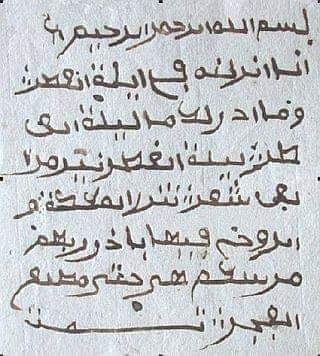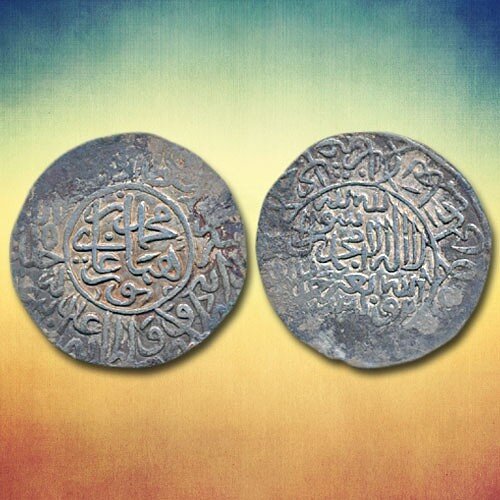On this day in Islamic history: January
A list of events that have occurred throughout Islamic history in the month of January.
(This will be constantly updated to reflect new information that arises/new information that I come across; your help in this regard would also be appreciated).
January 2:
On this day (2 January, 1492 CE {20/21 Safar, 897 AH}), Granada fell to the Kingdom of Castile. It was the final Muslim state of Andalusia and the final Muslim state in the Iberian Peninsula to fall to the Reconquista.
After a decade of civil war in the emirate, Emir Muhammad XII signed the Treaty of Granada on 25 November, 1491 CE (Muharram 897 AH), which gave the city over to Ferdinand and Isabella of Aragon and Castile. On the morning of 2 January, 1492 CE (Safar 897 AH), the city was taken over by the Catholic Monarchs and Muhammad XII was sent into exile.
Muslims continued to practice their religion secretly for over 100 years afterwards, but were finally expelled from Spain in 1609 CE (1018 AH).
(With some credit to the Lost Islamic History Facebook page)
January 5:
On this day (5 January, 1592 CE {19/20 Rabi al-Awwal 1000 AH}), the future Mughal Emperor Shah Jahan was born within the walls of the Lahore fort.
Shah Jahan was the third son of Jahangir and is best known for commissioning the Taj Mahal.
Pictured below is the Lahore fort.
January 14:
On this day (January 14, 630 CE {20 Ramadan, 8 AH*}), the Muslims under the command of the noble Prophet Muhammad ﷺ took the holy city of Makkah, then under the control of the Pagan Arabs known as Quraysh (the tribe the Prophet ﷺ belonged to).
Prophet Muhammad ﷺ gathered an army of 10,000 of his companions (May Allah be pleased with them) and marched on the city of Makkah. The opening/conquest of Makkah was largely uncontested and the city was taken over with very little bloodshed.
This event came to be known as Fath Makkah (The Opening of Makkah) as the Pagan Arabs led by Abu Sufyan (Allah be pleased with him) - who was not yet a Muslim -surrendered to the Muslims.
The Prophet ﷺ was said to have entered Makkah with his head lowered and praising Allah and reciting the Quran. His famous words were that today was a day of mercy and forgiveness.
* Note: There is difference of opinion of when the Prophet ﷺ & his companions actually entered Makkah with dates varying between 10th Ramadan to 20th Ramadan, 8 AH.
——————
On this day (January 14, 1761 CE {6/7 Jumada al-Thani, 1174 AH}), the Third Battle of Panipat was fought on the plains of Panipat (north of Delhi, modern-day India) between the (Muslim) Afghan Durrani Dynasty under Ahmed Shah Durrani, and the (Hindu) Maratha Confederacy/Maratha Empire.
Ahmed Shah Durrani or Ahmed Shah Abdali was the founder of the Durrani Dynasty, and the Durrani Dynasty is considered the foundation of modern-day Afghanistan.
The Marathas had been on the rise after the death of Sultan Aurangzeb Alamgir of the (Timurid) Mughal Dynasty and grew at the expense of the Mughals.
This Battle of Panipat between the Durranis and the Marathas is hence considered as halting the expansions of the Marathas and despite their later resurgence, they weren't able to go beyond Delhi (Source: Mughal Imperial Archives).
P.S. Bollywood desperately attempted to smear the Durranis in a movie on this battle, which ended up apparently failing at the box office.
January 19:
On this day (19 January, 1628 CE {11/12 Jumada al-Awwal, 1037 AH}), Shah Jahan became the ruler of the (Timurid) Mughal Empire. He is best known for commissioning the Taj Mahal.
The month of January is very notable for Shah Jahan because not only did he become the ruler of the Mughals in January but this month also marked when he was born.
Pictured is the Taj Mahal.
January 25:
On this day (25 January, 1835 CE {24/25 Ramadan, 1250 AH}), Muslims from West Africa that had been made slaves and forcibly transported to Brazil by Portuguese slave traders revolted in the Brazilian city of Bahia.
Although the revolt was militarily defeated, it led to a massive movement across the country to end slavery and send potentially problematic slaves (particularly Muslim ones) back to Africa.
Pictured is the beginning verses of Surah Qadr written by the Muslim slaves in Bahia, Brazil.
Credit: Lost Islamic History
January 27:
On this day (27 January, 1556 CE {3/4 Rabi al-Awwal, 963 AH}), Mughal Sultan Humayun (also known as Nasir-ud-Din Muhammad), died shortly after re-establishing Mughal/Timurid rule over Northern India.
Humayun was the second ruler of the Mughal Empire, who ruled over territory in what is now Afghanistan, Pakistan, Northern India, and Bangladesh from 1530–1540 CE (937-946 AH) and again from 1555–1556 CE (962-963 AH)
Pictured are the Mughal coins during Humayun's rule.
January 30:
On this day (30 January, 661 CE {20 Ramadan, 40 AH}*), Ali ibn Abi Talib (Allah be pleased with him), the fourth Caliph and the cousin of the Prophet Muhammad ﷺ (upon whom be peace) was assassinated by the extremist Kharijites sect, ending the Rashidun Caliphate or the Rightly Guided Caliphate.
Pictured is the name of Ali ibn Abi Talib in the form of Arabic calligraphy in the Hagia Sophia/Aya Sofya in Istanbul.
*Differences of opinion about exact date but 20 Ramadan, 40 AH seems to be the most commonly accepted.
Help me bring you more articles like this by becoming a Patron.













